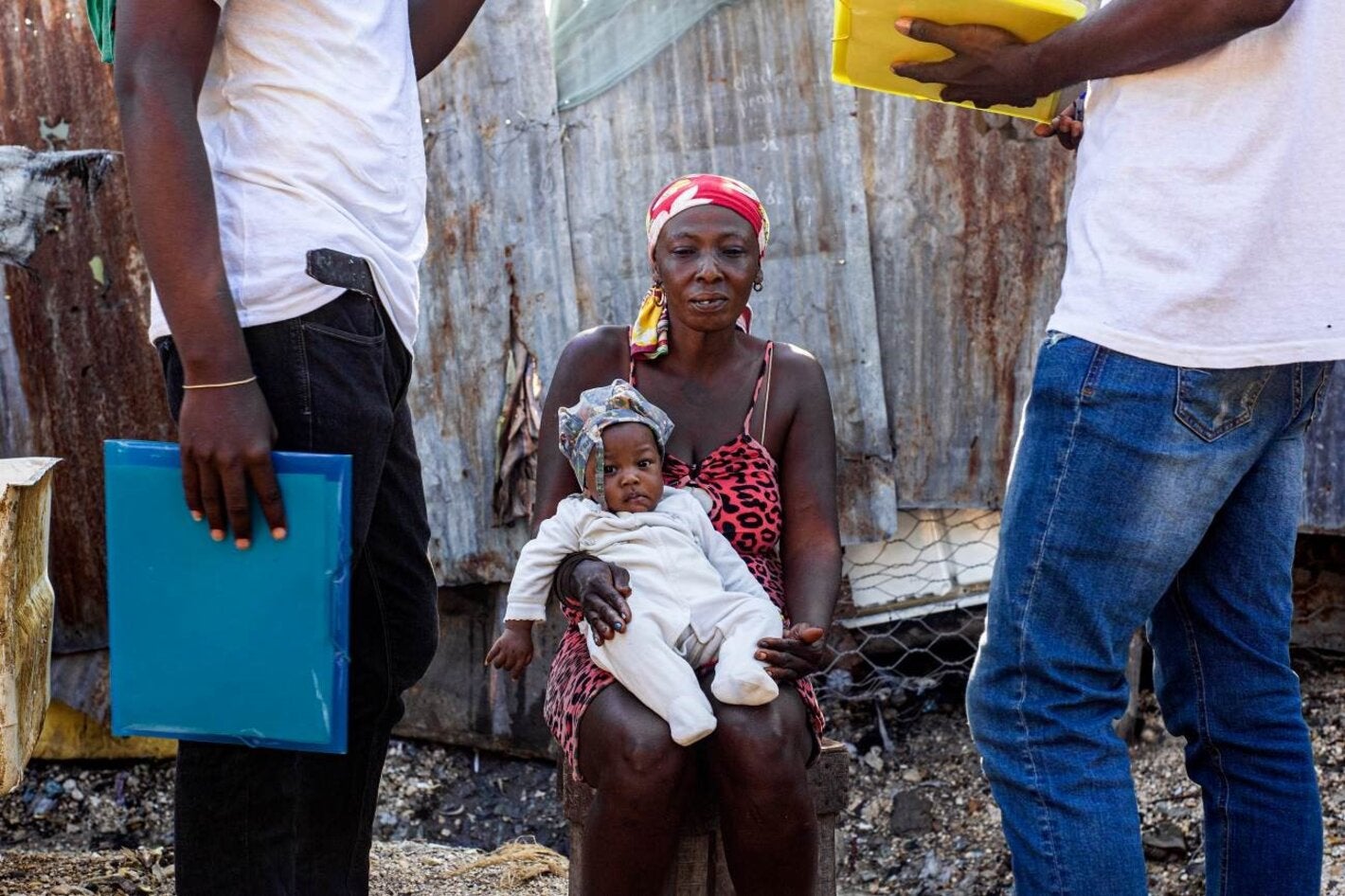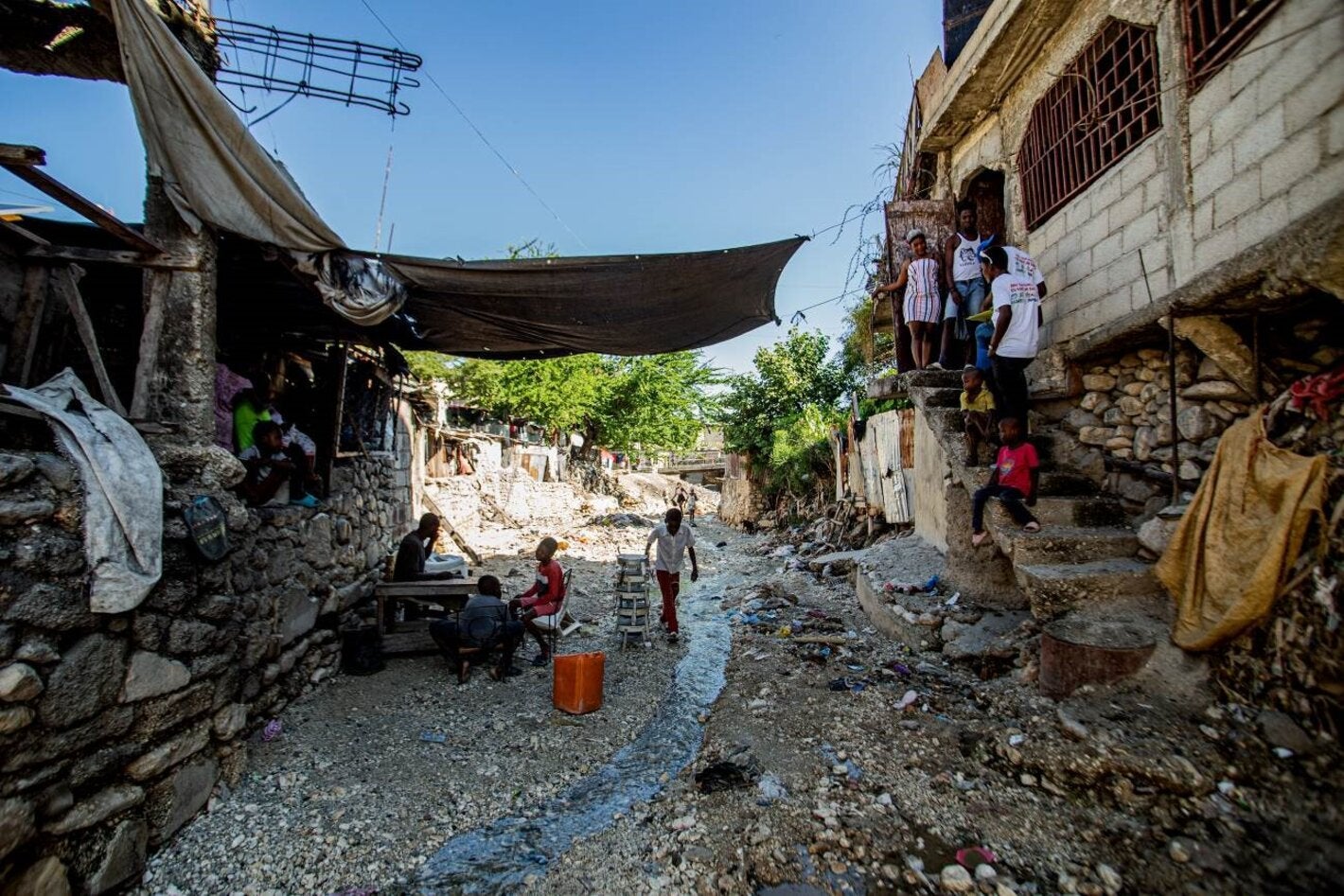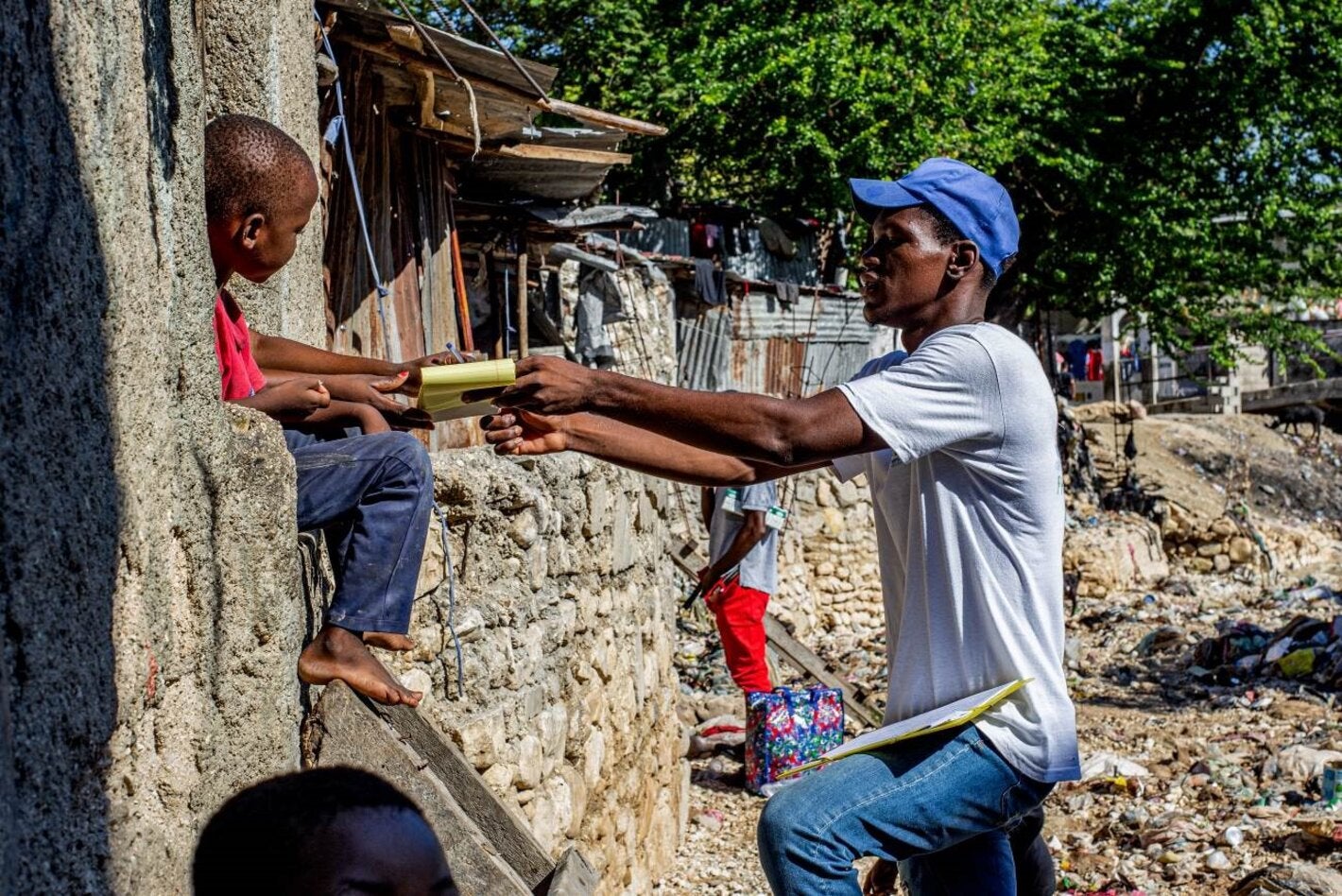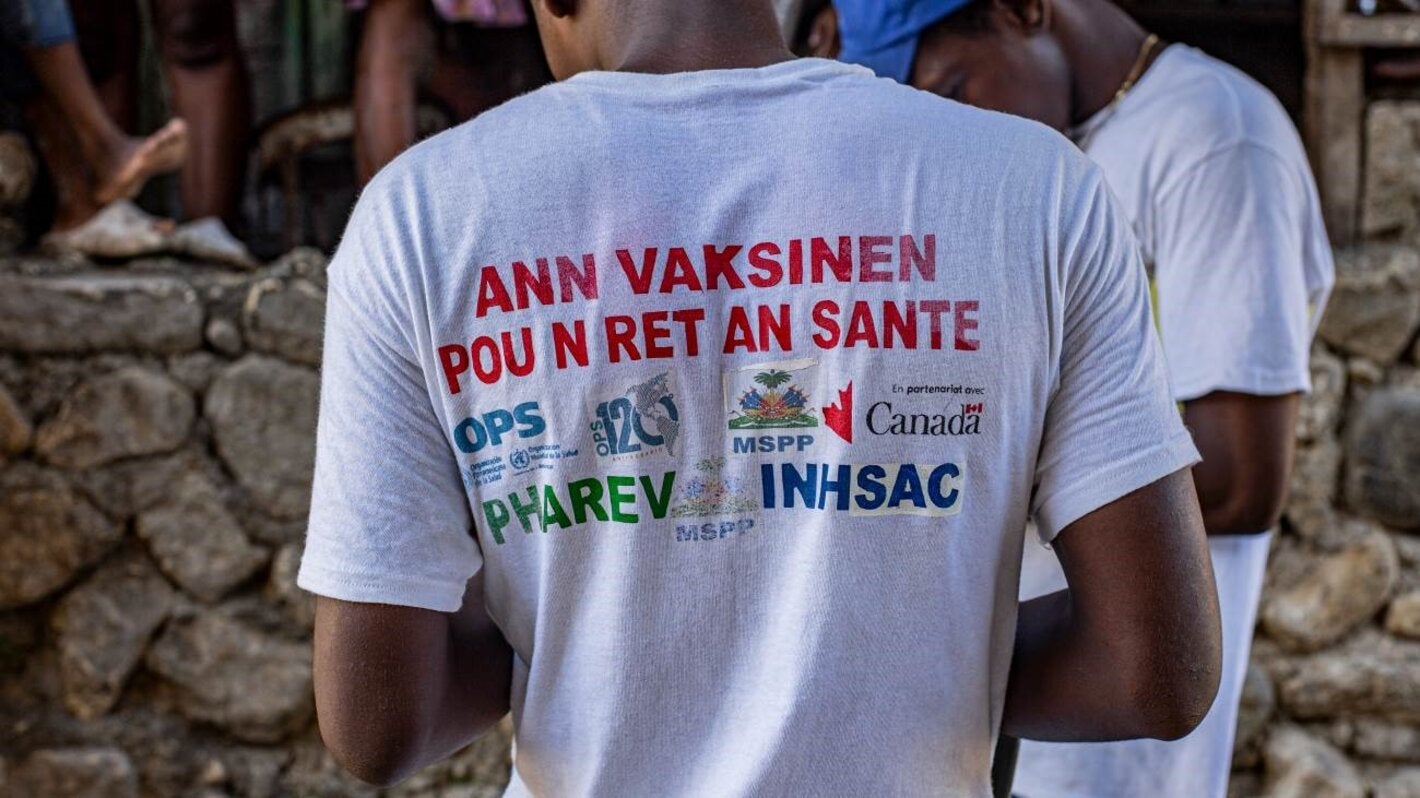
Campaign supported by Canada’s CanGIVE Initiative
Port-Au-Prince, November 20, 2023 (PAHO) - Over the past few years, persistent political, humanitarian, health, and security crises have contributed to a sharp decline in vaccination coverage in Haiti.
Urban violence and population displacement have helped generate an increase in the number of people dropping out of vaccination programs, which had already been exacerbated by the COVID-19 pandemic. At the same time, vaccine hesitancy and lack of access to healthcare have increased the risk of outbreaks of vaccine-preventable diseases such as polio, rubella, measles, and diphtheria, among others.
Within this alarming context, the Ministry of Public Health and Population (MSPP), with technical support from the Pan American Health Organization (PAHO) and financial assistance from the Government of Canada through the CanGIVE initiative, is organizing an awareness campaign aimed at identifying, recording, and regularly monitoring the immunization status of children aged 0-23 months and pregnant women who have never been vaccinated or were missed in follow-up vaccination programs. Once identified, these unvaccinated children and pregnant women are directed to the vaccination sites set up by the Western Health Department (Direction Sanitaire de l'Ouest) for catch-up activities.
The campaign is being implemented through home visits as well as individual and group education sessions conducted by teams of health mobilizers working in areas of extreme urban poverty in the communes of Carrefour, Cite-Soleil, Pétion-Ville and Port-au-Prince in the West Department. (Ouest Department).
Ricardo Jules is one of these young mobilizers. He reaches out to local communities to help dispel negative rumors circulating about vaccines and to inform people about the vaccination sessions scheduled at the nearest health centers.
"One of my main missions is to combat the low vaccination rates in Haiti, more specifically in the commune of Pétion-Ville in the Port-Au-Prince metropolitan area," he explains.
Like Ricardo, 72 other health mobilizers have been operating in these communes since 1 September 2023. To date, they have made 21,822 household visits and educated 75,102 people about the benefits of vaccines. These efforts have resulted in the identification of 5,461 children aged 0-23 months and 1,280 pregnant women who are under-vaccinated, meaning they have not received the recommended schedule of vaccines.
"I remember meeting a family whose young children had never been vaccinated. They didn't know what vaccination was, so the father and mother hadn't been vaccinated either. They were very open and quickly had their children vaccinated," he adds.
Thanks to the work of mobilizers, 839 children and 254 pregnant women have been vaccinated to date. These targeted actions, which are part of the drive to strengthen the national immunization program, will continue until the end of 2023 in hopes of reversing the decline in routine immunization, particularly in communes with compromised security. As part of this intensified effort, CanGIVE is injecting over 6 million Canadian dollars (around US$4,4 million) over a two-year period into the Haitian health system to bolster vaccination outreach and operations throughout the country. The contribution was announced by Canadian Prime Minister Justin Trudeau during the first Canada-Caribbean Community (CARICOM) summit in October in Ottawa.






